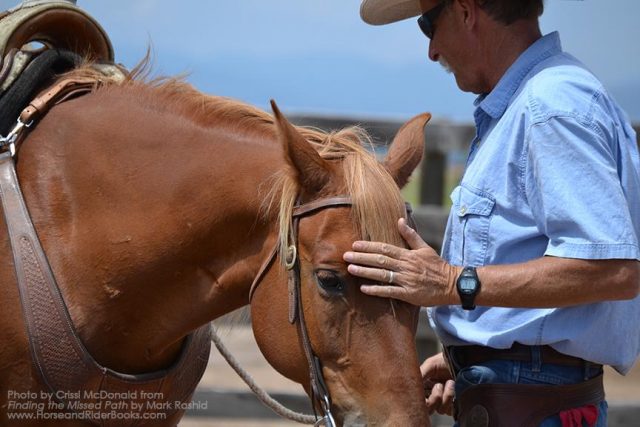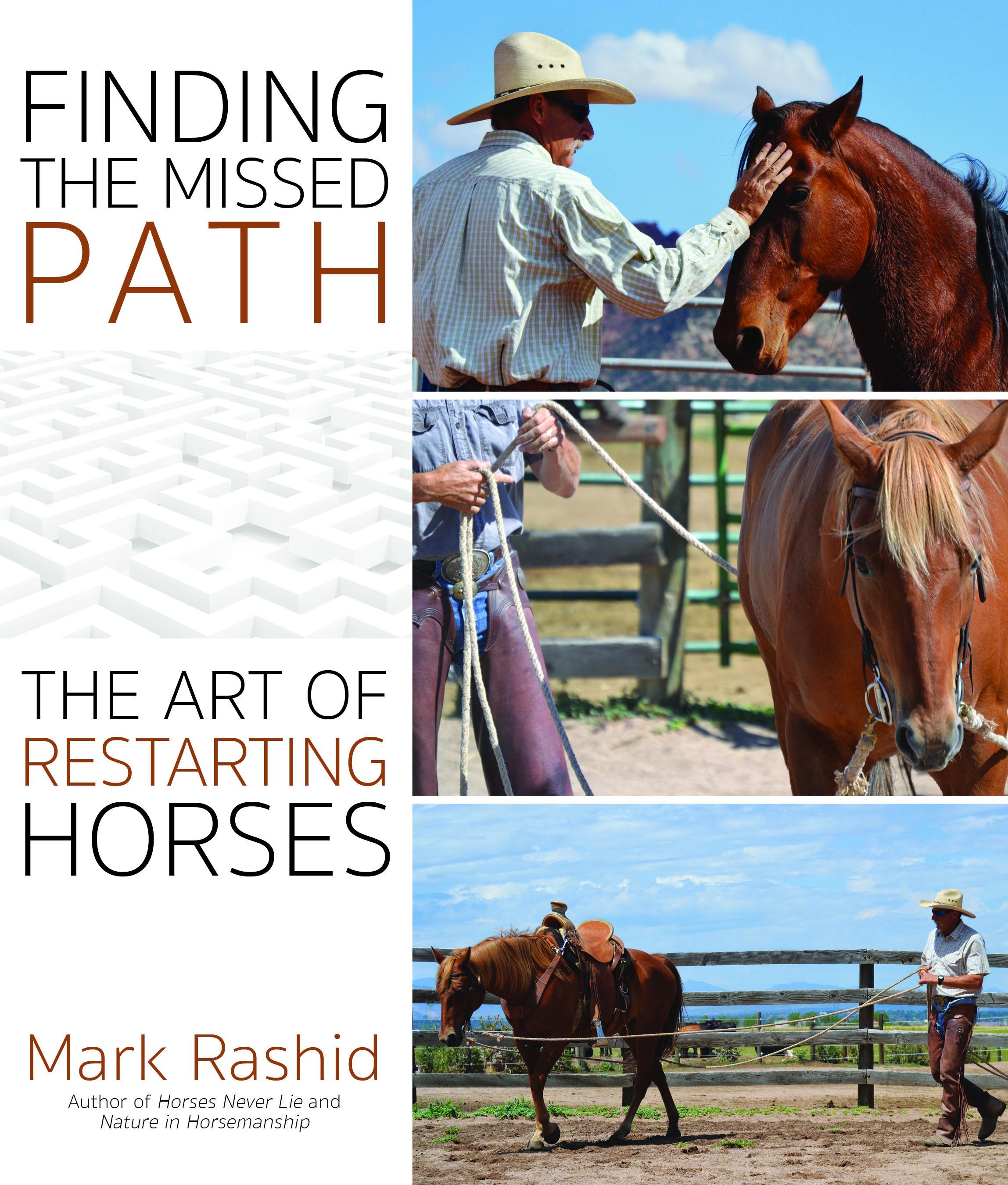
With Horses, Don’t Take It Personally
To the horse, his actions are neither good nor bad — just a response to circumstances. How does that change the conversation about respect? Mark Rashid discusses in this excerpt from his book Find the Missed Path: The Art of Restarting Horses.
It is important for us to understand that to a horse, behavior has no value. To him, his actions are neither good nor bad. Not having the capacity to understand the concepts of “good” or “bad,” much less the difference between the two, he is simply responding the best way he knows how, given the circumstances, and how those circumstances make him feel. In other words, when he is uncomfortable, his behavior will reflect that discomfort with confusion, defensiveness, or worry; when he is comfortable, he will be relaxed and willing.
When we stop and really give this subject some thought, we might see that the biggest issue is that the term “respect” actually has more to do with how we feel about the horse’s behavior than it does about how the horse feels about his behavior. And therein lies the rub.
Here is another way of looking at it. During a conversation with one of my martial arts instructors some time back, he made the point that when someone attacks us, we need to remember that the attack itself seldom, if ever, has anything to do with us personally. Instead, the attack is almost always the culmination of what is currently going on in the attacker’s life. If, as martial artists, we take the attack personally, we will have trouble thinking our way through what needs to be done at the time, and as a result will struggle with bringing the situation to a productive outcome.
On the other hand, if we take the situation at face value and deal only with the behavior as it appears in front of us, we can remove the emotional element from ourselves. This, in turn, allows us to become the calm in the storm—instead of part of the storm—and ultimately gain control of the situation before it controls us.
There is an old saying in the horse world, “In order for man to control the horse, he must first control himself.” And it is this self-control part of horsemanship that can be the most difficult for even the most experienced of horse people. It is for that reason I think it is important that we do what we can to remove those aspects that could have a tendency to feed into the loss of that self-control.
So the next time someone tells us our horse is being disrespectful, or we think our horse is being disrespectful, or we want to punish our horse for being disrespectful, let’s take a second and do a quick internal inventory. In that moment, when we hear, feel, or see something that we have been taught is “disrespect,” let’s check and see what emotion comes up inside us. Is it one of anger, fear, or defensiveness? If it is, we will almost surely end up being part of the problem, as opposed to part of the solution. We should always keep in mind that the behavior a horse offers has no value to the horse. The horse is simply responding to what he is feeling at any given time. His behavior only has a value when we put a value on it, such as “this is good behavior” and “that is bad behavior.”
If we just eliminate the word “respect,” and simply take the behavior in front of us at face value and deal with it in a calm, thoughtful, and appropriate manner, we can almost certainly become the leader that the horse is looking for to help him out of, or through, a potentially worrisome situation.
And after all, who among us (horses included) wouldn’t prefer calm guidance in a stressful situation to behavior that is erratic, fearful, and defensive?
This excerpt from Find the Missed Path: The Art of Restarting Horses by Mark Rashid is reprinted with permission from Trafalgar Square Books (www.horseandriderbooks.com).








Leave a Comment